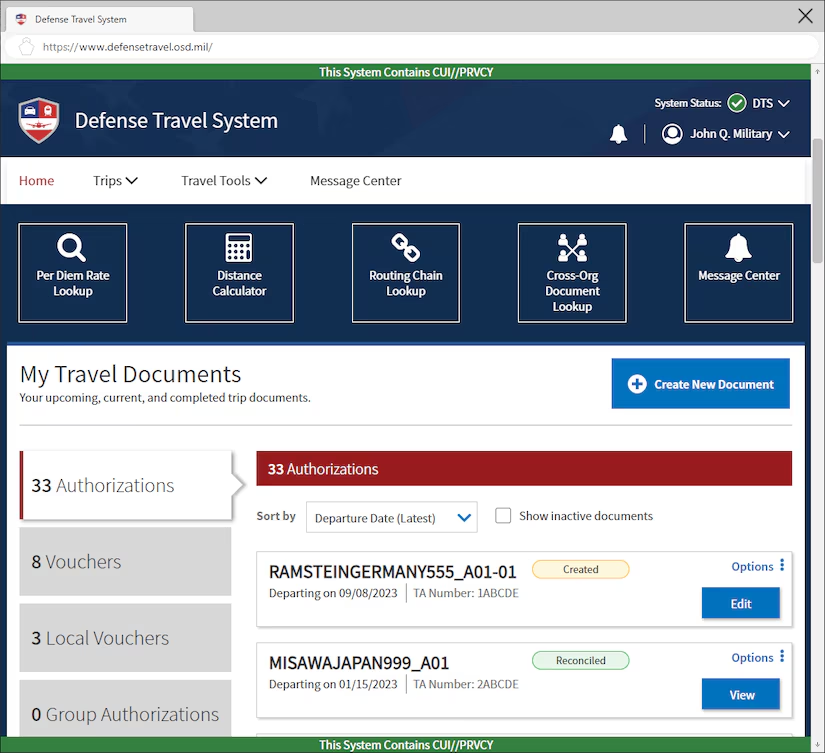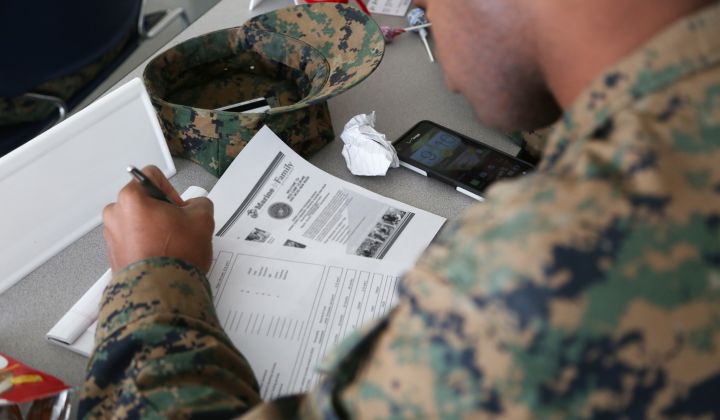DTS for TDY: Complete Guide to Military Travel Reimbursement 2025
Learn everything about DTS for TDY – from filing claims to getting reimbursed for military travel expenses. Expert tips and step-by-step guidance for Defense Travel System success.
Did you know that over 3.2 million TDY trips are processed through DTS annually? Navigating the Defense Travel System (DTS) for your Temporary Duty (TDY) assignments doesn’t have to be a headache! I’ll guide you through everything you need to know about managing your military travel expenses efficiently.
Understanding DTS Basics
The Defense Travel System (DTS) is a comprehensive online travel management system used by the Department of Defense (DoD) to process official travel requests, authorizations, and reimbursements. DTS streamlines the entire travel process, from initial planning to final payment, making it an essential tool for military and civilian DoD personnel.
DTS plays a crucial role in facilitating efficient military travel by automating approval processes, ensuring compliance with Joint Travel Regulations (JTR), and providing real-time access to travel information. The system helps maintain accountability and standardization across all military branches.
Common terminology includes TDY (Temporary Duty), JTR (Joint Travel Regulations), CBA (Centrally Billed Account), and AO (Authorizing Official). Users must familiarize themselves with these terms to navigate the system effectively.
To access DTS, users need a CAC (Common Access Card), proper system permissions, and completed DTS training. Web browsers must be configured correctly, and users should ensure they have the latest software updates installed.
Preparing for Your TDY in DTS
Before initiating a DTS authorization, travelers must gather necessary documentation, including training certificates, conference approvals, invitational travel orders, or other relevant authorizations. Command approval for travel should be secured before beginning the DTS process.
The pre-travel checklist includes verifying passport/visa requirements, checking government travel card status, confirming training completion, and ensuring DTS access is active.
Travelers must understand their entitlements and allowances, including per diem rates, mileage reimbursement, and incidental expense allowances. These vary by location and travel circumstances.
A Government Travel Charge Card (GTCC) is typically required for official travel. Users must ensure their card is active and within credit limits before travel begins.
Creating Your DTS Authorization
The authorization process begins by selecting the type of travel and entering basic trip information. Users must then input specific details about their mission, including duty location, travel dates, and justification.
Transportation options should be selected based on cost-effectiveness and mission requirements. Users must compare available flights, considering contract carriers and GSA City Pair Program fares.
When making lodging reservations, travelers must adhere to per diem rates and use DoD preferred hotels when available. Any rates exceeding per diem require justification and approval.
Special authorizations might include rental cars, special conveyance, or other mission-specific requirements. Amendments to existing authorizations must be submitted when travel plans change.
Managing Your TDY Expenses
Proper documentation includes itemized receipts for all expenses over $75 and for lodging regardless of cost. Receipts should clearly show payment method, date, and details of expenses.
Allowable expenses typically include transportation, lodging, and meals within per diem rates. Non-allowable expenses such as personal entertainment, alcohol, or optional upgrades must not be claimed.
Split disbursement allows travelers to direct specific amounts to their government travel card while receiving remaining reimbursements in their personal accounts.
Local travel considerations include mileage calculations, parking fees, and public transportation costs. These expenses must be documented and justified appropriately.
Filing Your DTS Voucher
Vouchers should be submitted within five business days of travel completion. Delayed submissions may affect reimbursement timing and travel card payment due dates.
Supporting documentation must include all required receipts, conference certificates, approval emails, and any other relevant materials justifying travel expenses.
Common mistakes include missing receipts, incorrect dates, missing justifications for special circumstances, and improper meal deductions for provided meals.
When vouchers are rejected, travelers should carefully review AO comments, make necessary corrections, and resubmit promptly. Multiple rejections may require supervisor intervention.
DTS Best Practices and Tips
Time-saving practices include using document templates, saving frequent locations, and utilizing favorites for recurring travel arrangements.
Maintaining organized digital copies of all travel-related documents facilitates easier voucher preparation and provides backup documentation if needed.
The DTS mobile app allows travelers to upload receipts, check travel status, and manage basic travel functions from their mobile devices.
Help resources include the Travel Explorer (TraX) system, DTS help desk, local defense travel administrators, and online training modules.
Conclusion
Successfully navigating DTS for your TDY travel doesn’t have to be complicated. By following these guidelines and staying organized, you’ll become a pro at managing your military travel expenses. Remember to keep all your receipts and submit your voucher within five working days of completing your travel!







